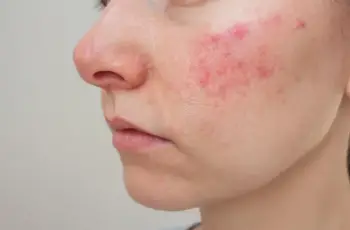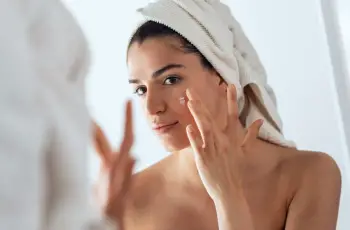
Bakuchiol is a powerful antioxidant that can help with a variety of skin issues. It has long been used in traditional Chinese medicine and is finding its way into Western skincare products. But what is it?
Mysterious ingredient? And what benefits can we expect from it? Today we’re going to look at Bakuchiol in more detail and hopefully learn a little more about it.
What is Bakuchiol made of?
Found in the seeds and leaves of the Bakuchiol plant, Bakuchiol is widely used in traditional Indian and Chinese medicine for a variety of conditions due to its antioxidant, anti-inflammatory and antimicrobial properties.
Especially as it relates to skin issues.
Although Bakuchiol may seem to be a relatively new climber and popular ingredient in skincare products, a slew of scientific studies since 2014 have shown it to be a highly effective and safe alternative to retinol.
What does Bakuchiol do for the skin?
Numerous studies have shown that Bakuchiol is just as effective at reducing fine lines and wrinkles on the skin, and is less irritating than other products. It is also a powerful antioxidant, which means it has the ability to protect the skin and its natural barrier from environmental influences such as the sun, pollution, climate, and other skin stressors.
A full list of skin benefits that can be achieved with Bakuchiol: Helps fight uneven skin tone. May help reduce signs of aging such as fine lines and wrinkles. Can regenerate skin cells for radiant, younger-looking skin
Accelerates skin rejuvenation. Contains anti-inflammatory properties. Contains anti-acne properties.
Helps restore firmness by increasing collagen production in the skin. Improves skin texture for a smoother complexion. Helps soothe skin, making it a good choice for those prone to sensitivity. A lesser-known ingredient in the beauty industry that has achieved some impressive results. Since it is compared to retinol, it is ideal for those who find retinoids too strong for their skin and often cause irritation.
Bakuchiol now gives you the opportunity to get the same skin benefits without causing a skin reaction. How is Bakuchiol Oil Used? When using bakuchiol oil, you also need to use a “carrier oil” like coconut oil, which makes it more emollient and allows it to move around the face and penetrate deeper into the skin, into the lower layers of the epidermis.
Take a few drops of bakuchiol oil (as needed). Add an equal amount of coconut oil and mix everything together. Apply it to the desired areas 4-5 times a day. You can also find bakuchiol in serum form, which you can use after thoroughly cleansing your skin and before applying moisturizer. Bakuchiol’s formulation and manufacturing vary little, but the benefits to the skin are just as powerful.
Unlike retinol, which needs to be introduced slowly into your skincare routine to give your skin time to build up a tolerance to the concentrated concentration, bakuchiol is safe and gentle enough to use. You’ll also notice that certain ingredients that don’t work well with retinol will have little or no effect on the effectiveness of bakuchiol.
How long does it take for bakuchiol to work?
With regular, consistent use in your skincare routine, you’ll start to see results in about 12 weeks. Use twice daily to restore elasticity, wrinkles, and hyperpigmentation for a smoother, firmer, and more radiant complexion.
Can Bakuchiol be used during the day?
Unlike retinol, which loses its effectiveness when exposed to UV rays, bakuchiol can be used during the day due to the anti-inflammatory properties of its formula. However, an SPF of 30 or higher is still recommended to ensure that damage from excessive sun exposure does not occur.
Is Bakuchiol as good as retinol?
Strictly speaking, bakuchiol and retinol are not structurally identical, but they work just as effectively on the skin to reduce fine lines, wrinkles, and other signs of aging, and they actually work well together.
When used together, you’ll notice a strong overlapping effect on the skin that tends to neutralize the stronger retinol, as bakuchiol has the soothing properties of stabilized vitamin A, which improves skin tolerance
Increasing retinols of varying strengths.
You’ll also find that bakuchiol is more stable in sunlight, making it a great retinol alternative for all-day use. Remember to moisturize your skin with a broad-spectrum sunscreen of SPF 30 or higher to protect it from damage and give you the best results for your entire complexion.
Why is bakuchiol so popular right now?
This is likely due to the growing popularity of natural and vegan alternatives to other traditional ingredients. In recent years, people have become more aware and concerned about skincare ingredients, becoming mainstream and widely used in a variety of skincare products.
More and more people are paying attention to the products they use on their faces and choosing ingredients that are highly effective and impactful. So, you have a strong and effective retinol alternative. For some people who are prone to allergies, just the word “retinol” can trigger a rash. But luckily, you have now found a great alternative that can simplify your skincare routine and easily solve your skin problems.


